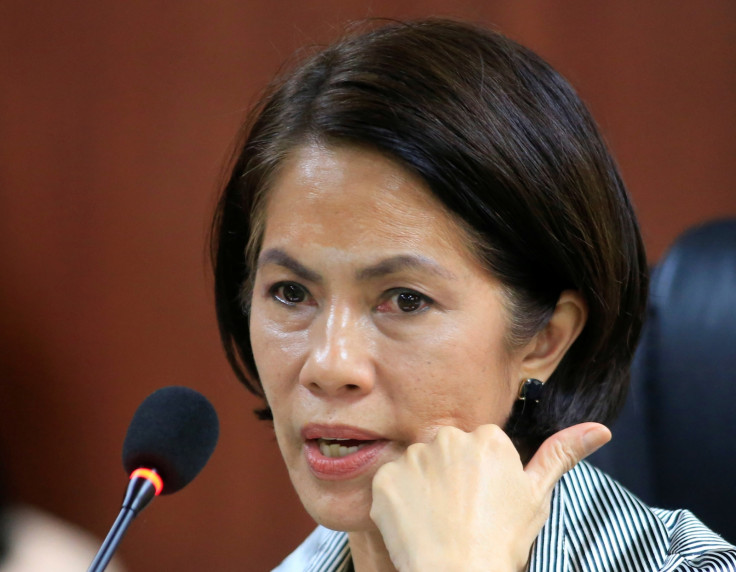Philippines: 19,000 people risk losing their jobs after Manila orders closure of half its mines
The mines account for about 10% of global nickel supply and half of Manila's annual output.

More than 19,000 people are at risk of losing their jobs after the government ordered the closure of 23 mines and suspended the operations of six others.
The Department of Environment and Natural Resources Secretary Regina Lopez, who ordered the closure of the mines —mostly nickel producers — and the suspension of five others, in a bid to fight environmental degradation by the industry, has sparked widespread outcry not only from the mining industry and lawmakers but also from within her own ministry.
The Mines and Geosciences Bureau, which warned that more than 19,000 people stand to lose their jobs when the mines are closed said: "The role of mining when it comes to employment generation whether direct or indirect in the rural areas cannot be overly emphasised.
"It is estimated that about four indirect jobs may be generated for every direct employment in the upstream and downstream sectors," the bureau said, according to The Standard.
The agency also warned that mining investments in the country could plummet to $1.69b from the projected $4.45b.
The bureau also warned that the suspension of the top gold and silver producers "will certainly create a vacuum since [the] companies are among the top precious metal producers in the country.
Base metals copper and nickel output are also expected to drop by 26% and 67% respectively by the mine closures, it added.
"It is important to note that the decline in mineral production is tantamount to lower taxes, fees and royalties collected by the government both national and local. Mineral exports are also expected to go down," the bureau which comes under the DENR warned.
Lawmakers to file motion against Lopez's closure order
Lawmakers are proposing to file a House resolution on Monday 6 February to question Lopez's decision. "Lopez doesn't know what she's doing. She does not know her job. The closure order is illegal and arbitrary," Prospero Pichay told The Standard.
The congressman said the closure order was issued without giving the mining companies "due process" and without considering the thousands of mine workers and their families.
"I am afraid that this would also cause massive poverty in the [Surigao province] area and contribute to the insurgency problem. Most of the 10,000 mining workers were former rebels who might lose confidence in the government as a result of this decision and go back to the mountains as rebels," Pichay added.
In a briefing held Thursday 2 February, when Lopez made the announcement, she said: "My issue here is not about mining, my issue here is social justice." She also showed footage of damage from mining, Reuters reports.
"Why is mining more important than people's live?" she asked. The move does not come as a surprise. Following her appointment to the post in 2016, some mining operations were suspended amid an audit of the country's 41 mines.
"I visited the mines and I made my own judgement based on my own observations," Lopez said, noting that 15 of the mines ordered to close were located in watersheds.
"Water is life and we will not allow the water our our people to be at risk," Lopez said.
The nickel mines ordered to close account for about 50% of Philippines annual output, which according to analysts represent about 10% of the total global supply.
"The Philippine disruption should have a bigger impact on the overall nickel market considering it is the biggest nickel ore producer in the world, " Daniel Hynes, an ANZ commodity strategist said.
Only 12 companies managed to pass the mining audit.
The mines ordered closed include those run by Hinatuan Mining Corp, a unit of the top nickel ore producer Nickel Asia Corp and BenguetCorp Nickel Mines Inc.
Mining companies vow to take legal action
Ronald Recidoro from the Chamber of Mines said that the affected companies will "definitely" take legal action, initially seeking a motion for reconsideration with the DENR.
"The audit process was clearly flawed," Recidoro told Reuters, saying the chamber had opposed the inclusion of anti-mining groups in the audit teams.
The Chamber's chairman Artemio Disini slammed the government, saying: "Mining companies were invited by government to invest in the Philippines and signed contracts with them as partners in mineral resource development, By entering into these contracts, government is bound to observe due process. Secretary Lopez cannot just shut down mines without due process."
The chamber also noted: "What we question is the bias and partiality of the audit from the very start with Secretary Lopez's early statements that she does not like mining and would like to see mines closed."
© Copyright IBTimes 2025. All rights reserved.






















